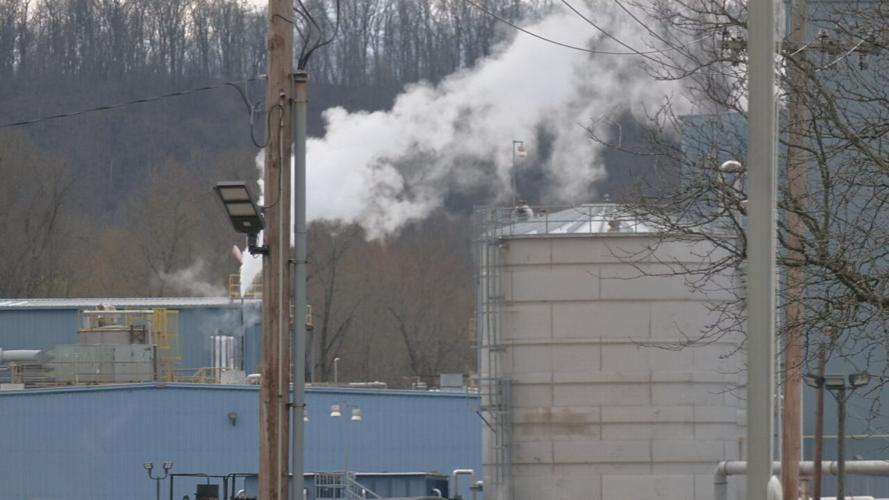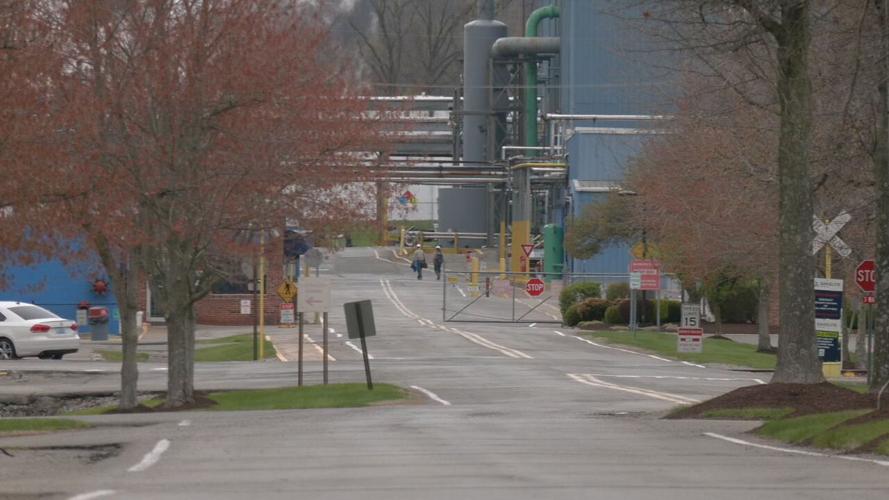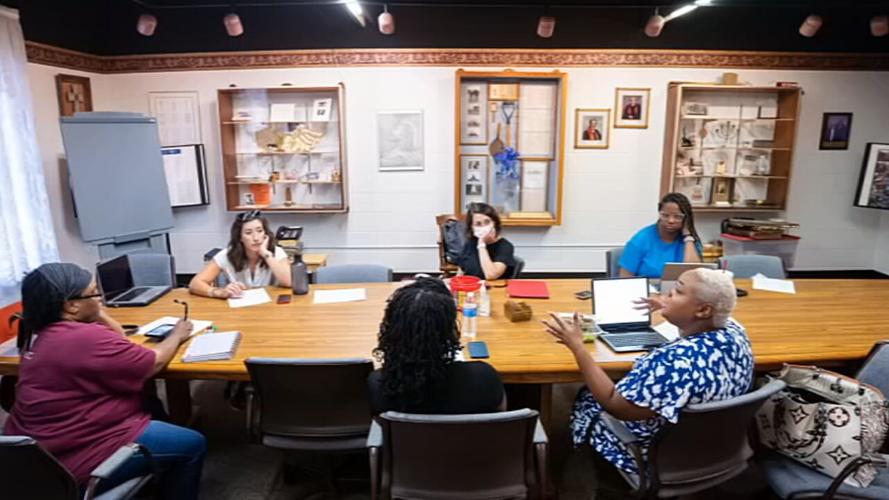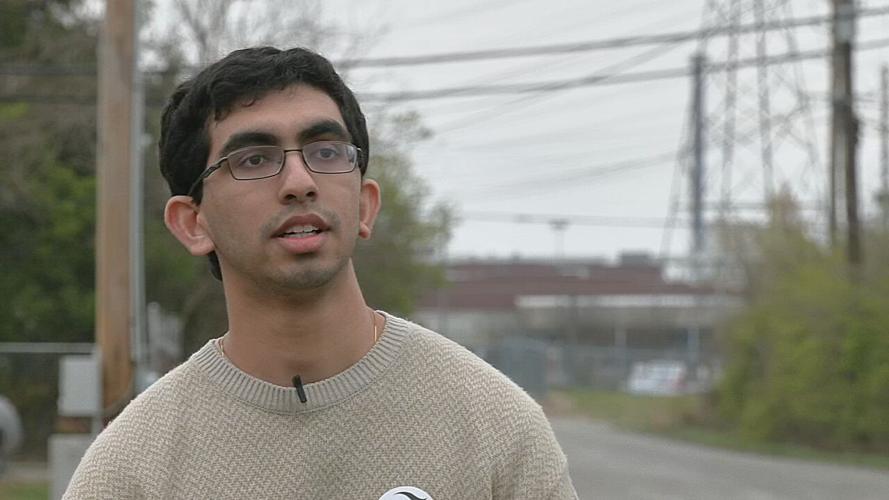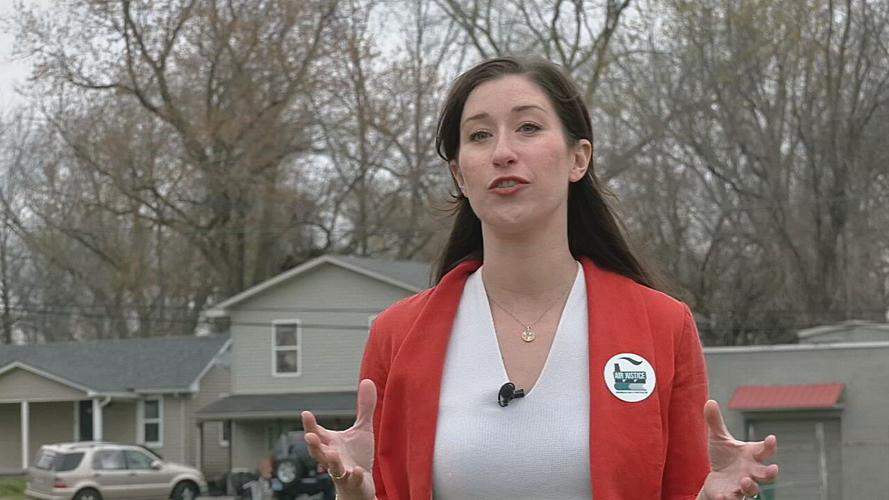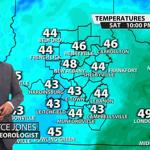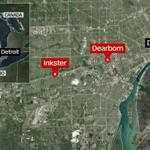LOUISVILLE, Ky. (WDRB) -- A group of Louisville students are tracking concerns over air quality in Rubbertown. The students will use the data from their study to hopefully create change for the neighborhood's residents.
Rubbertown is an industrial district that sits along the Ohio River in western Louisville. The air quality in that area has been questioned for years. Some say the area smells bad and is unhealthy to breathe.
"You could see a change in the atmosphere, like the colors are a lot more diluted. It gets to a point where you're seeing air pollution, which is really problematic because the reason air pollution is so easy to ignore is because it's really invisible," said Romith Paily, describing the first time he drove into Rubbertown.

Romith Paily is a sophomore at the University of Louisville who is also part of Air Justice, a group of UofL students, professors and community leaders working to improve air quality in Louisville's Rubbertown neighborhood. (WDRB photo)
Paily grew up in east Louisville and is now a sophomore undergraduate student at the University of Louisville. He is enrolled in the GEMS program at UofL, which stands for Guaranteed Entrance to Medical School, and is majoring in public health, with minors in philosophy, healthcare, management and biology.
"Growing up, not in Rubbertown, I'm not consciously thinking of issues with air pollution and how it could affect my health, and the more research I do, the more research I don't want to do, in a way, because I'm starting to see how bad it is" he said. "Some of the things are getting so bad that there's going to be permanent health effects for residents in Rubbertown now that, you know, we can't really do anything about, we can only stop it and start trying to make the situation better after we've kind of put a limit on it, but, I think it's just really unfortunate that there are going to be people in this area, who are growing up here, that are going to suffer health effects because of no fault of their own. Something completely out of their hands, but, even more problematic, something they're not aware of."
That's why he joined Air Justice, a group of UofL students, professors and community leaders working to document the air quality issues in Rubbertown.
"It's very pertinent to anyone who lives in Louisville, really, because all the stuff that's happening on the west end doesn't mean it's just people in the west end's problem, to me it's indicative of a problem that could spread anywhere," said Paily. "And that's why I think it's so much more important that we address the problems happening in the west end right now."
Tires, paint, laundry detergent and more are all produced in the neighborhood. But since 2005, the Louisville Metro Air Pollution Control District said toxic chemicals in the Rubbertown area have dropped by almost 80%.
"We asked thousands of residents, 'What do you wish you knew about air pollution?' And their answers are what fill our website, to be honest," said UofL assistant professor of English, College of Arts & Sciences, Dr. Megan Poole. "So there's information about, you know, what types of air pollution are you exposed to, there's a difference between the particles that come from the car and the chemicals that come from the facilities. And what's important to know is that we can talk about air pollution generally, but it's most important for residents who live in the area where all of these things coalesce, and that's what happens in west and southwest Louisville. So you have a cluster of chemical facilities emitting toxic pollutants, and then you have two major interstates that intersect, you have a major highway in Dixie Highway, so these residents are really being exposed to multiple factors. And that's when air pollution becomes not just about a scientific issue, it becomes an issue of health equity, which means you're not getting to decide what is impacting your health."

UofL professor Dr. Megan Poole is also part of Air Justice, a group of UofL students, professors and community leaders working to improve air quality in Louisville's Rubbertown neighborhood. (WDRB photo)
The team conducted nearly 2,000 surveys.
"We want to hear from as many residents as possible about their experiences with air pollution because we believe story is the most powerful tool to push back against an issue," Poole said. "What we're learning is different people in different neighborhoods experience this issue in different ways, and what's really cool is to see people come together and connect and realize, like, they're not alone, they're smelling it too. They want to push back too, and so we hope this is just the start of community telling us what they want Air Justice to do in this push for a more equitable city."
The goal is to use those stories to change legislation, making the air quality for Rubbertown's future generations cleaner.
"Air Justice's whole thing is not only informing residents, but getting them to engage," said Paily. "We want the public to be able to engage with legislation, engage with what's going on in their community. I don't think people need to go out of their way to get access to information. I think it's our job to make sure that everyone has that access to information."
Air Justice will launch its website at noon on Tuesday, March 28. One component of the site will allow people to report odors.
They've been working on this project since 2021. Over the course of the last two years, more than 50 students have been involved.
The project has received over $350,000 through support from The Gheens Foundation, UofL Health Equity Innovation Hub and the Humana Foundation.
For more information about Rubbertown, click here.
Copyright 2023 WDRB Media. All Rights Reserved.
